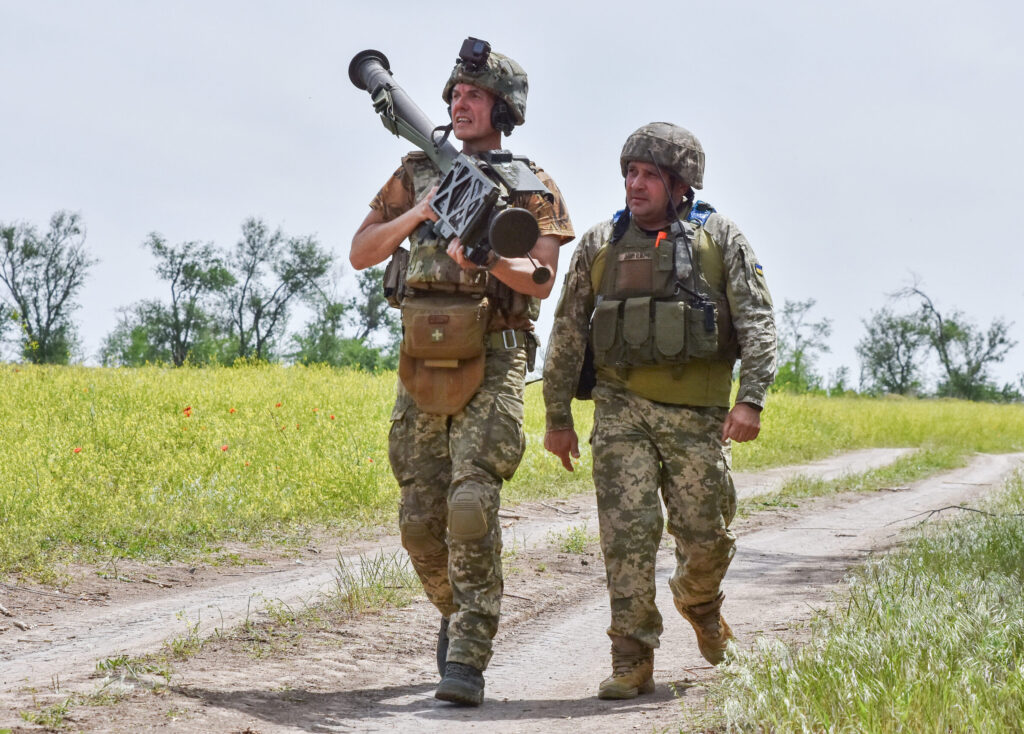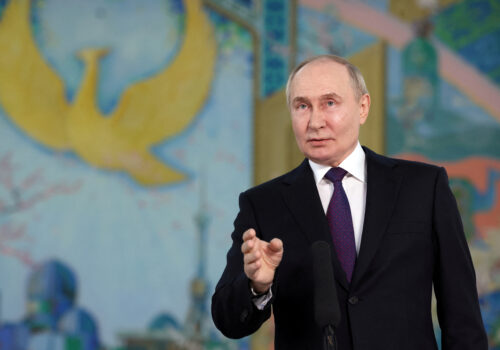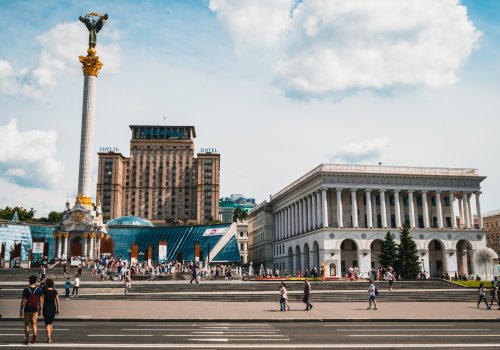
The view from Kyiv: Why Ukrainian NATO membership is in US interests

In his recent interview with TIME magazine, US President Joe Biden indicated that his skepticism about Ukrainian NATO membership is deep-rooted and goes far beyond any practical opposition to granting Kyiv an invitation to join the alliance while the current war with Russia is still ongoing. It would seem that President Biden does not regard Ukrainian NATO membership as a prerequisite for lasting peace in the region.
Unsurprisingly, the view in wartime Kyiv is strikingly different. Record numbers of Ukrainians now support NATO membership, which is widely seen as the best way to preserve the country’s sovereignty and prevent any future invasions. Crucially, many Ukrainians are also convinced that their country’s NATO accession would be in the national interests of the United States as well as Ukraine itself.
Stay updated
As the world watches the Russian invasion of Ukraine unfold, UkraineAlert delivers the best Atlantic Council expert insight and analysis on Ukraine twice a week directly to your inbox.
There are a number of reasons to believe Ukrainian NATO accession would also be beneficial for the US. These range from military practicalities to potential strategic advantages and geopolitical gains.
First, the United States has an obvious and immediate interest in ending the Russian invasion of Ukraine, as this would allow the US to focus on other pressing domestic and foreign policy priorities. But it is equally clear that the war unleashed by Vladimir Putin in February 2022 will never truly end as long as the issue of Ukraine’s NATO membership remains undecided.
Second, the apparent reluctance of the United States to make a clear commitment regarding future Ukrainian NATO membership sends a dangerous signal to Putin. It encourages him to believe his policy of invading and occupying neighboring countries to prevent them from joining NATO is successful and should be continued.
Eurasia Center events

Third, Ukrainian NATO membership is the best way to protect the considerable US investment in Ukrainian security. The United States has invested tens of billions of dollars in security assistance since Russia’s full-scale invasion began more than two years ago. This investment can only be regarded as successful if Ukraine is secure from further Russian attack. At this stage, the only credible way to guarantee Ukrainian security is by providing the country with a road map to NATO membership.
Some critics of military aid to Ukraine have complained about so-called “blank checks” in support of the Ukrainian war effort. While this characterization of aid is misleading, it is worth underlining that NATO accession would likely be a far more economical way of safeguarding Ukraine’s future security than the regular financial support packages the country’s partners currently provide.
Fourth, as a NATO member, Ukraine would be a considerable asset. The Ukrainian military is large, combat-hardened, highly skilled, and boasts unrivaled experience in the realities of modern warfare. In other words, Ukraine’s army is ideally suited to become the core of NATO’s eastern flank. This would significantly enhance European security while reducing the current military burden on the United States, potentially freeing up US forces for deployment elsewhere.
Lastly, Russia’s imperial ambitions did not begin with Vladimir Putin and do not end in Ukraine. Nevertheless, inviting Ukraine to join NATO would represent a powerful blow to the imperial identity cherished by many ordinary Russians and members of the Kremlin elite. Indeed, granting Ukraine membership of the alliance is perhaps the only way to fully convince Russian society that neither the Soviet Union nor the Russian Empire will ever be restored in any form. This would represent a huge gain for the US and for the future of international security.
Alyona Getmanchuk is the founder and director of New Europe Center and a nonresident senior fellow at the Atlantic Council Eurasia’s Center.
Further reading
The views expressed in UkraineAlert are solely those of the authors and do not necessarily reflect the views of the Atlantic Council, its staff, or its supporters.

The Eurasia Center’s mission is to enhance transatlantic cooperation in promoting stability, democratic values and prosperity in Eurasia, from Eastern Europe and Turkey in the West to the Caucasus, Russia and Central Asia in the East.
Follow us on social media
and support our work
Image: Ukrainian servicemen walk down the road with a US Stinger air defence missile launcher on the front line in Zaporizhzhia region. The U.S. Department of Defense has announced a new military aid package for Ukraine. This Presidential Drawdown Authority package has an estimated value of $225 million. The latest defense package will provide Ukraine with additional capabilities to meet its most urgent battlefield needs, such as air defense interceptors; artillery systems and munitions; armored vehicles; and anti-tank weapons. (Andriy Andriyenko / SOPA Images via Reuters Connect)




